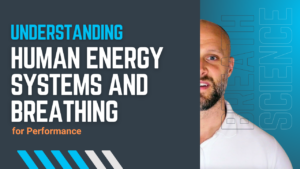How to Reduce Stress By Managing Your Physiology

So in this blog, I want to talk to you about how to reduce stress by managing your physiology.
Many of you may believe that stress is this mental construct where you are overwhelmed and unable to think. Whilst true, it’s not the full extent.
You see, stress is a physiological response to an internal or external environment change, and whilst you can’t always change your surroundings, you can change the internal state in which your physiology is.
Stephen Porges discusses how physiology impacts your psychology in his book the polyvagal theory , describes that we have three vagal states. One can be described as a place of safety, presence and curiosity. Two, fight or flight and three, freeze.
We can describe that place of safety using Dan Siegels Window of Tolerance.
Chronic stress, previous trauma or a lack of resilience leads to a small tolerance window, reducing their ability to tolerate emotionally challenging situations.
One way to improve resilience is through exposure work. You expose someone to a challenging situation and then bring them back to a place of safety, or in physiology – homeostasis. Again it’s not always easy to bring environmental stimuli to boost resilience. You can learn how to reduce stress by managing your physiology.
To do this, we must look at the freediving communities and some pioneering research Laureate Institute for Brain Research.
Freedivers take a single large breath and can hold that for 3 – 10 minutes whilst diving to depths of 100m underwater. For the average human being, this has got to be one of the most fear-provoking challenges we can face. Yet freedivers learn to remain completely relaxed; otherwise, they will use more oxygen and when panic sets in, you know the dive is nearly over.
Not good if you meter below the surface.
The nature of freediving is fear-provoking because you are underwater, but something fascinating is happening within your body.
Here we need to discuss innate panic alarms.
“The innate alarm system, a network of interconnected midbrain, another brainstem, and thalamic structures, serves to rapidly detect stimuli in the environment before the onset of conscious awareness.”
An inbuilt system that lets us know through feelings of panic that the environment around us is not safe, and therefore triggers a high arousal stress response.
Justin Feinstein has made some pivotal theories in this area, believing that the Amgdaya may play a significant role in this response.
From an evolutionary perspective, we can suggest an animal is likely to live on if it can avoid being prey to another animal. Therefore being utterly silent in a freeze response might be the difference between being spotted and caught, the predator moving on.
According to Feinstein, the Amgdayala can override the respiratory control centres within the brain to shut off ventilation; in doing so, CO2 will begin to rise. The chemoreceptors are also dampened, and the system is kicked back on after a while. But now CO2 is elevated and, as a result, produces a stress response.
Whilst out in the wild, or in the neanderthal days, this would have given us an evolutionary advantage. Today, anxiety and panic are likely caused by issues that do not revolve around life or death situations but more so day-to-day interactions such as giving a talk, holding a meeting and so forth.
Therefore, can we use internal exposure therapy in the same manner as we would for psychological fear and using breath hold, or inhale large boluses of CO2 to reduce feelings of concern?
Freedivers will regularly expose themselves to high levels of CO2 to become more tolerant of the sensations and feelings that arise.
Feinstein has got patients with panic disorders to inhale large boluses of high-concentration CO2, which resolved their anxiety for months.
My clients have gone from being able to walk 20 steps whilst holding their breath to 80+ steps with exposure work, positive self-talk and learning to self-regulate.
In the video below, I discuss this phenomenon and How to Reduce Stress By Managing Your Physiology.
Should you wish to learn more about how you can reduce your stress by 50% in just eight weeks, check out my FREE video training at:
http://sbs.performancethroughhealth.com




